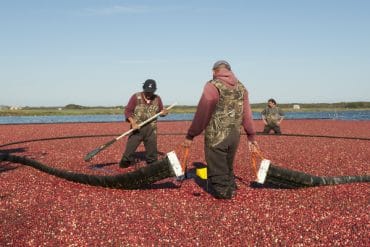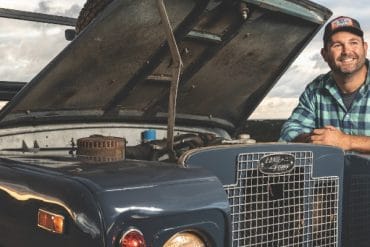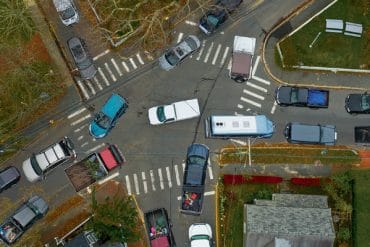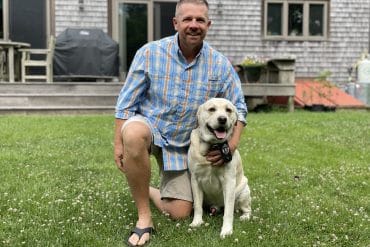 The romance of Alison Van Fleet and Tyler Levine began like most any other. The two first met at a concert a decade ago, but it wasn’t until six years later that they started dating on Nantucket. Once they got together they stayed together. Their love of sports, music, travel and adventure became the backdrop to their relationship, and they began cataloging the many memories that make up a shared life. But Alison and Tyler faced bigger obstacles than most couples, and their perseverance to this day brings sharp focus to the true meaning of love.
The romance of Alison Van Fleet and Tyler Levine began like most any other. The two first met at a concert a decade ago, but it wasn’t until six years later that they started dating on Nantucket. Once they got together they stayed together. Their love of sports, music, travel and adventure became the backdrop to their relationship, and they began cataloging the many memories that make up a shared life. But Alison and Tyler faced bigger obstacles than most couples, and their perseverance to this day brings sharp focus to the true meaning of love.
“When we first started to date, I could still drive,” Alison says. “Now I’m not driving. I’m not really walking, and I’m in my wheelchair.” Alison suffers from a rare form of mitochondrial disease, a degenerative neuromuscular disease that attacks the “powerhouse of the cell” known as the mitochondria. She has gradually lost the ability to speak clearly and walk unassisted. Her eyelids droop slightly and she appears restless sitting next to Tyler. Before she started using a walker and then a wheelchair, many people who came across Alison thought she was intoxicated because of her slurred speech and lack of balance. Eventually she got tired of people staring and snickering and decided to hand out business cards explaining her condition.
Sometimes things are not as they appear, the card reads. I am not drunk or on drugs. My balance and coordination are not good and my speech is slurred because I suffer from a debilitating neuromuscular condition called mitochondrial disease. I am disabled
because of this disease. I have lost the ability to walk straight and speak clearly, all things most people take for granted. I try very hard to live a full life, but it is filled with many challenges.
Alison’s challenges began in 1997 while she was a student at Ithaca College. She suffered from multiple seizures and doctors misdiagnosed her with epilepsy. They prescribed her an anti-seizure drug called Depakote, but the seizures continued. Then Alison became gravely ill. Her parents rushed her to the hospital only to find out that she had full-blown liver failure. The Depakote had destroyed her liver. Doctors waited to see if her liver would recover with medicine, but Alison’s body continued to spiral out of control. She ran a 107-degree temperature, her lungs filled up with fluid, her blood wouldn’t clot and she eventually went into a coma for ten days. When she awoke, Alison was paralyzed. The doctors said her body was “metabolically deranged,” and she would need a liver transplant to survive. At the time there were over 17,000 people on the waiting list for a liver transplant. Alison was given Status 1, indicating that if she didn’t receive a transplant in a matter of days she would die.
Alison lifts up her shirt just above her naval to reveal large scars across her abdomen from her liver transplant. A donor was found in the eleventh hour, and Alison has since made the long painful recovery out of the hospital. Sixteen years later, her life is largely dictated by mitochondrial disease, which was the root of her seizures from the beginning. “It is progressive, and there isn’t a cure,” Alison says. “I take vitamins to slow it down.” Between one thousand and four thousand children are diagnosed with mitochondrial disease each year, and Alison’s type, known as POLG, is exceptionally rare. “I have to eat, exercise and sleep. If I don’t have those things my body stops working,” she says. And that’s where Tyler comes in. “Tyler is constantly pushing me to exercise and he really wants me to keep my body moving,” Alison says. “And I really, really like that about him because I know for a fact that my disease needs it.”
As the disease takes more and more away from Alison, Tyler doubles down his determination to keep them living an active life. “I remember one of the first things we did when we got together; we walked Tupancy Links and there was one section at the end where she needed to hold my hand, but other than that she was walking the whole thing,” Tyler says. “When we went to Maui, I dragged her up a mountain to go see a bamboo forest. We did a tandem kayak trip in Belize. A lot of that stuff I am glad that we did when we did it, because that would be a much different experience now.” That’s not to say that the couple is exactly taking it easy. Far from it.
Brought up on Nantucket, Tyler worked at Young’s Bicycle Shop for many years and he’s a lifelong cyclist. He’s since left Young’s to spend more time with Alison, but his passion for cycling remains. Over the course of their relationship, Tyler has found bikes for Alison to ride. She has a recumbent tricycle that she cruises around town, and when Tyler is training for a triathlon, she rides behind him while he runs. Together they ride a specially designed tandem bike, with Alison pedaling recumbent in the front and Tyler pedaling from behind.
These two aren’t just cruising leisurely down the bike path; they’re doing rides that can humble even the strongest cyclists. This past winter, they road 113 miles down Highway 1 to Key West, braving traffic, tight bike lanes and the Florida heat. The summer before that, they pedaled from Hyannis to Provincetown with no assistance— just them and the bike. When Tyler competed in the Iron Team Race this past July, Alison joined him for the bike leg. It was their second year in a row competing together. And she wasn’t just catching a free ride— Alison cranked the pedals. While the disease affects her fine muscle control, her strength remains. Tyler recounts a ride down the Cape when a cyclist on a road bike pulled behind them and started drafting off of them. Alison wasn’t having it. “All of a sudden I feel Alison pedaling a little faster and a little faster, and we dropped him,” he says. “When we got to Woods Hole, these two guys came in behind us all sweaty, and they said between breaths: ‘My God we’ve been chasing you guys this whole time!’”
This fall, Alison and Tyler are embarking on a very different kind of adventure together. Tyler proposed to her this spring and they will be married on Nantucket at the Unitarian Church in October. The decision to get married was not an easy one. Tyler spent two weeks backpacking alone in the Grand Canyon, meditating on marriage and his relationship with Alison. “I wanted to be able to stand up at the altar and have the person say ‘in sickness and in health’ and be able to say ‘I do’ and really mean it,” he says. “Because things have certainly gotten challenging, and will probably continue to get challenging, and I needed to know that I could do that and that I wasn’t going to freak out and run away.” At the end of his sojourn in the Grand Canyon, Tyler realized that he had always assumed he would be with Alison, and they should be married. Their wedding is being held this October for one very special reason: Alison wants to walk down the aisle. Every year her ability to walk becomes more and more impaired. So every day when Alison and Tyler climb onto their bike, that’s what they’re training for: to keep her legs strong enough to walk down the aisle.
“Live in the moment,” Alison says, when asked what message she wants to get out to the world. Indeed, Alison and Tyler demonstrate that in the face of life’s inevitability, we only have the present to hold to. Whether in sickness or in health, love isn’t always easy, but it can be the force that brings hope and strength and focus to what is truly important in life. And when life seems to be an uphill battle, Alison and Tyler prove that the best cure is to just keep pedaling.





